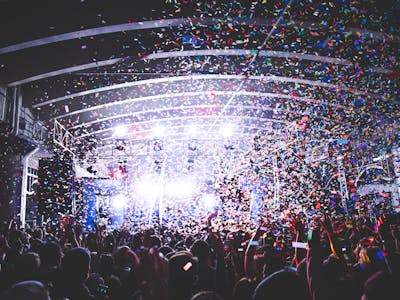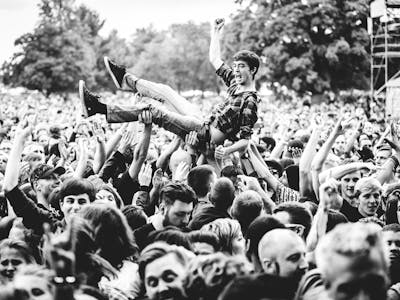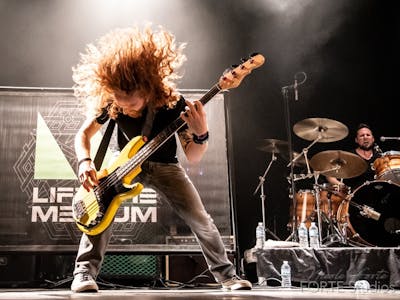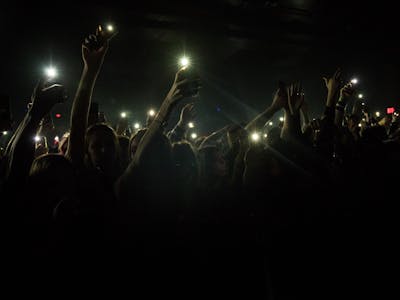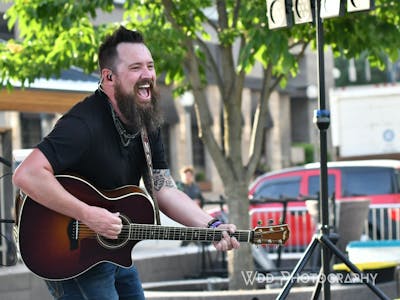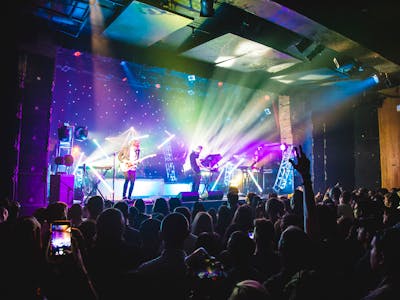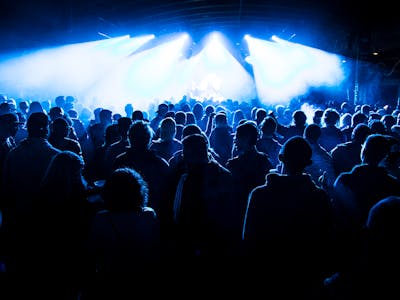Becoming an opening act for larger shows is a great way to grow your career by exposing your music to a new group of music fans. In this article we will explore how you can go about earning opening spots for national artists & how you can make the most of those opportunities.
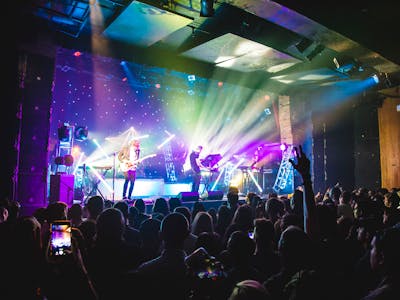
- Artist Resource
Complete Guide to Booking and Promoting Shows
This guide is intended for musicians that are interested in learning how to book & promote their own live events with aspirations of building a long-standing career.
Ian Bolender
Walk before you run
Unfortunately, simply writing great songs won’t be enough on its own to warrant an opening spot for your band. As with any relationship, you need to give as much as you receive. In another article we defined the different types of concert promoters. Legitimate concert promoters got into this business because they have a passion for music, but that doesn’t mean they can simply book bands they like to open every show. Before you can be considered for those spots you need to prove that you can sell tickets on your own.
Use our tips on how often you should play shows to create scarcity & prove that you can bring a respectable amount of people to a concert. A good goal at first is to get to a point where you can draw 100 people to a ticketed event on your own. Once you can do that it’s easy to get opening spots for national artists.
How to open for a national artist
Developing a great relationship with local promoters is key to getting opening spots on larger shows. Luckily, if you have done your work & can consistently draw 100 people on your own then you are likely already on the radar of the talent buyers in your market. Reach out to them & explain that you are looking for opportunities to open for national artists so you can grow your audience.
You can take a look at upcoming shows, but most bills are full by the time the show is announced. There is no good way to know who is about to announce a show, so stay in constant communication with your local promoters. They often have to send your information to the agent booking the show to get approved, so give them the ammunition they need to get a quick approval. Great music + the ability to sell 100 tickets on your own will usually do the trick.
If there are artists out there that are on your bucket list to open for then reach out to them! Send a short e-mail with links to your music & explain that you would love the opportunity to open for them the next time they come to town. Tell them how many people you are drawing at your own shows. You probably won’t hear back from all of them, but if you are persistent they may remember you when it comes time to book a tour. You never know what kind of opportunities are out there until you ask, so don’t be shy.
Before we get too deep, let’s stop for a reality check. Opening spots on national shows in clubs with a capacity of 300-2,000 have typically paid $100-$200 since the 1990’s. The pay isn’t exactly keeping up with inflation, but it kind of just is what it is. These gigs are not going to make anyone’s career financially, so get that into your head before you start negotiating. By the time you have a conversation with a local promoter about an opening spot that budget is already set & can’t be changed. In many cases, they may have not even considered an opening act so this comes as an additional expense. Don’t play for free (ever), but don’t get bummed when you realize that these spots aren’t going to pay your mortgage.
Your goal here is to grow your audience, so focus on that. If you get the opportunity to play in front of 1,000 people that have never heard of you before & you can win 10% of them over then that’s 100 more people that have heard of your band than before. You will make your money the next time you headline a performance (more on that below).
Make the best of the opportunity
Opening for national artists is not the finish line, remember that. Once you earn the opportunity to open a national show you have a responsibility to make the most out of it. Your goal is to win over the crowd, the promoter, and the national artist. Here are a few tips:
- Keep show information confidential until it is announced. It’s exciting to book your first festival performance or opening spot on a large show, but you need to keep everything to yourself & not leak any information to anyone (not even your best friend). Promoters, Agents, Managers, and Artists take this very seriously (especially festival lineups). The last thing you want to do is be identified as a band that can’t be trusted.
- List your show the moment you are allowed to. Make sure you have the show listed on your website, Social Media, etc.. Ask for approved art, preferred billing language, and a ticketing link. Some people get extremely bent out of shape when you use the wrong photo, so ask before you go grabbing anything off the internet.
- Promote the show. Ask the promoter how you can help to promote the show. Many artists feel like it’s the promoter’s job to get people to show up to the show. While they will do everything in their power to do that it certainly shouldn’t be their sole responsibility. If they see you out there talking about it on social media, inviting people to the event, passing out fliers, and putting up posters then you are going to win them over before you ever play a song.
- Book a follow up show. Whether you are playing in your home market or a nearby city, you should have your next headline performance booked & ready to announce before you open for a national artist. Make sure the date is far enough away to not compete (or just don’t announce it until after or while you are playing). If your goal is to win over some of the crowd & encourage them to come to one of your events then you need to have that all planned out in advance. (Be mindful that if your show is at a different venue the promoter may not want you actively promoting your show at their venue. Talk to them before you do & respect what they say about it)
- Advance your performance. Contact the venue at least one-week prior to the show to find out what time you need to be there. Find out as much information about the show as you can. You should ask what time load in is, if you get a soundcheck & when that would be, what time you play, and how long your set is.
- Show up on time. Remember that this isn’t your show, you are essentially a guest. Be respectful of everyone’s time & show up a little early. There are always fires that need to be dealt with & you don’t want to contribute to any stress.
- Stay sober. Don’t act like a spoiled rockstar & drink yourself to oblivion in the greenroom & then stumble onto the stage like a fool. Stay sober, treat this like a job, and do the hard work of building an audience one person at a time.
- Start / End your set on time. Make sure you keep an eye on the time. You know how long your songs are, so there is no excuse for going over. Do everyone a favor & don’t explain what each song is about or the backstory… You are the opener, so they probably aren’t that interested. Keep the on-stage banter to a minimum & let your songs do the talking. You will have plenty of time to talk about your songs when you are the headliner at your own show.
- Spend more time at your merch booth than backstage. Talk to people, introduce your bandmates, and sell some merchandise. Invite people to your next show one by one.
Everything mentioned above assumes that you have put together an amazing set. At the end of the day everything circles back to that. However, songs alone won’t cut it. I’ve known talented songwriters that ruined their careers by acting like children at shows & being disrespectful to venues, artists, and fans. The music industry is a small world & your reputation will most certainly precede you. Make sure you do everything in your power to put your best foot forward.
Next: Eight things your band can do to make a lasting impact on concert promoters
